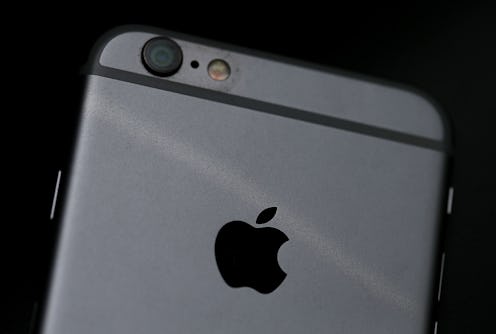News
7 Things iPhones Can Do That Androids Can't
In just a few short weeks, the latest iPhones will be on display in San Francisco as part of a special event held in San Francisco on Sept. 9. The iPhone 6s is rumored to have the same physical design as the iPhone 6 but with added internal features. Rumors are also swirling that Apple will be showing off its beefed-up TV box as well. Even though there has yet to be a set release date for them, the iPhone still seems to be leading the pack when compared with other devices. These seven things iPhones can do that Androids can't truly make the case for Apple superiority.
Apple is known for its sleek design and focus on aesthetics. The company is also quietly becoming one of the most secure in terms of technological breaches. Whereas Android's open source operating system allows for mass customization, it also bogs down the process of making necessary updates available and leaves devices open to dangerous malware. The sheer ease of simple tasks like messaging and media sharing also puts the iPhone above and beyond. The strangest stat counting in the iPhone's favor? According to an Eat24 study, their users eat far healthier than those with Androids. There's far more than a healthy diet in store for those who make the switch to iPhone, however.
1. iMessage
Apple makes it easy to carry on a conversation across all devices. The iMessage service allows for free voice and text messaging between Apple products in a way that is seamless and efficient. You can link your iMessage account to your Mac, your iPhone, and iPad adding an ease to going between devices that Android simply cannot match. Their closest technology, Google Hangouts, does not allow for similar cross-device conversation. Likewise, while iMessage is in the same app as regular texts, Android users have to manually switch settings to combine the two.
2. Full Searching
Google may be a fantastic search engine but Android's native search function certainly doesn't make it easy to find things between apps, contacts, and settings. Apple's Spotlight search culls from everything on your phone, including emails and even voice memos.
3. Vibrate Switch
Switching between a loud ringer and putting your phone on vibrate is as simple as flipping a switch on an iPhone. Android phones once again force users to manually change settings via a separate menu, bogging down the process of silencing your phone.
4. Less Clutter
There is a word for software pre-installed on devices that cannot be removed and provide little function for its users — bloatware, according to Forbes. Android is notorious for loading up its phones with apps from carriers and manufacturers. Apple, on the other hand, has a marginal amount of bloatware, if any. Sure, you can't delete the Weather or the Stocks app, but they're far more useful than a Sprint app you'll never use. Google is allegedly doing away with the bloatware, according to AndroidCentral, but that has remained to be seen.
5. AirDrop
iPhone users can easily share contacts, photos, and other media over Bluetooth via AirDrop, whereas there is no native technology on Android that offers the same service. AirDrop even provides an extra layer of security by prompting users to set their visibility, making it so that only your contacts can connect and share with you.
6. Security
In a 2014 PulseSecure mobile threat report, it was revealed that 97 percent of malware targets are Android phones rather than iPhones. Given the fact that Android is open source, which means there is more freedom to change the operating system as a whole, it's difficult to implement widespread fixes to such threats as Stagefright, a notorious virus that can infect phones via a simple message.
7. Faster Updates
This brings us to our last point: iPhones simply update their software far faster because there is no set way to alter the iOS operating system as with Android's open source designation. That means that any viruses, threats, or issues that need to be debugged are easily fixed in a widespread way.
